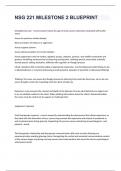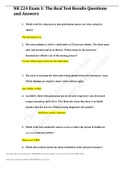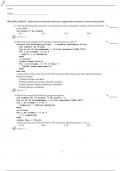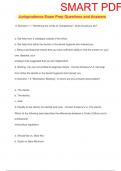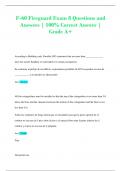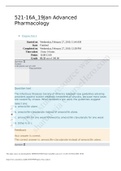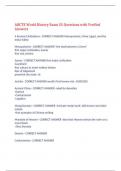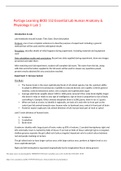Tentamen (uitwerkingen)
NSG 221 Herzing University -NSG 221 MILESTONE 2 BLUEPRINT well answered
- Vak
- Instelling
NSG 221 MILESTONE 2 BLUEPRINTSchizophrenia care - correct answer Assess the age of onset, poorer outcomes associated with earlier onset Assess for previous suicide attempt Elicit any history of violence or aggression Assess support systems Assess client perception of current situation Assess ...
[Meer zien]
